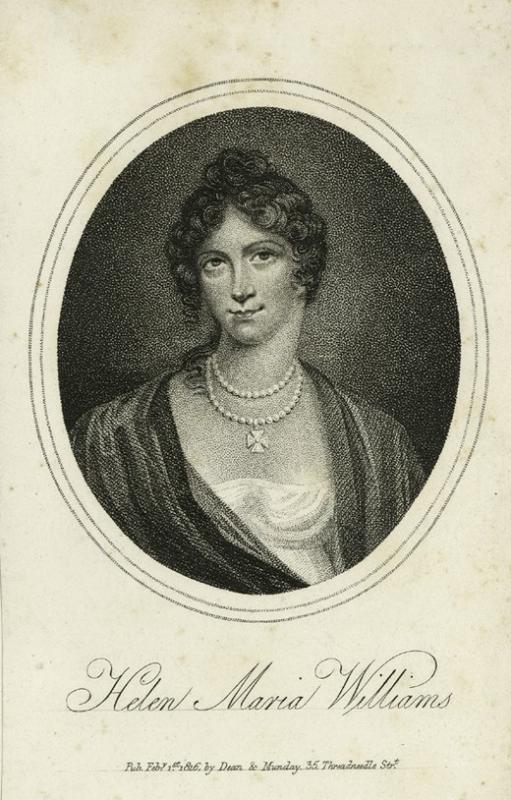Quote
"What a relief would some people find in being able to escape, for an hour, from those everlasting evenings which are devoted to the dull vacuity of fashionable conversation, or the ad repetitions of card assemblies, and to store the famished mind with a little stock of thought and sentiment, in such a society as the Lycée!"
Links to the Encyclopedia:
The Prince de Piemont conversing lately upon the commotions which agitate Europe at present, ended by saying,"Enfin, il faut que ceux qui veulent régner se dépêchent." The minds of men, roused and animated by the most important and extraordinary movements, do, indeed, seem to lose sight a little of "that divinity that hedges in a king."
I am not, however, always occupied by these vast political discussions, but spend a part of every day at the Lycée, a charming institution, where learning seems stripped of its thorns and decorated with flowers, and where the gay and social Parisians cultivate science and the belles letters, amidst the pleasures and attractions of society; while in England, where the art of being happy is certainly far less understood than in France, when we wish to acquire knowledge, we shut ourselves up for that purpose in sober meditation, and serious solitude. Perhaps, indeed, the knowledge gained by solitary study may be the most profound; but the knowledge acquired in society leaves on the mind, the most agreeable impression.
The Lycée was formed in 1785, under the auspices of Monsieur the king's brother, and Monsieur d'Artois, and was soon resorted to not only by men of letters, but by the most fashionable persons of both sexes. Lectures are given at the Lycée by the most celebrated professors at Paris, on natural philosophy, chemistry, natural history, botany, history, and belles letters; and the Greek, Italian, French, and English languages are taught.
The Lycée drooped a little at the period of the revolution. In the violent convulsion of that moment, literature, and arts were forgotten. But the Lycèe soon revived; and though its former patrons are now at Coblentz, preparing an attempt, of which the lessons of history they received at the Lycèe might have taught them the solly and impracticability, that of enslaving a people who are determined to be free; this institution is rising every day into higher celebrity from the eminent abilities of some of the professors. Of their knowledge in the different sciences they teach, I, in my ignorance, am little qualified to judge. But I can feel the charms of eloquence, and therefore find that chemistry, when taught by Mons. Fourcroy, is the most engaging, the most enchanting science in the world.
Mons. Garat, member of the first National Assembly, gives us lectures on Roman history, no less interesting than philosophical, and frequently makes such sublime applications to the revolution of France as call from my eyes the tears of delight and admiration.
Sometimes our studies are accompanied by fine music; and sometimes the Abbé de Lille, the first French poet, recites his harmonious verses.
Upon the whole, the pleasures of the Lycée are perfectly congenial to my taste; and it is to me by far the most agreeable of all the various resources which this great capital affords. I regret we have no such institution in London. What a relief would some people find in being able to escape, for an hour, from those everlasting evenings which are devoted to the dull vacuity of fashionable conversation, or the ad repetitions of card assemblies, and to store the famished mind with a little stock of thought and sentiment, in such a society as the Lycée!
I am surprised to meet there with so few of my countrymen. Such of them as come to Paris to acquire the French language, would find at the Lycée not only the advantages of instruction, but of conversation; since the gentlemen form a sort of club every evening, when the journals of the day are read, and its politics discussed.
Sources
Text: Helen Maria Wiliams , Letters from France: containing many new anecdotes relative to the French Revolution, and the present state of French manners. Boston: Printed [by J. Belknap and A. Young] for Thomas and Andrews, David West, and E. Larkin, Jun, 1792, Vol. II, p. 87-90.
